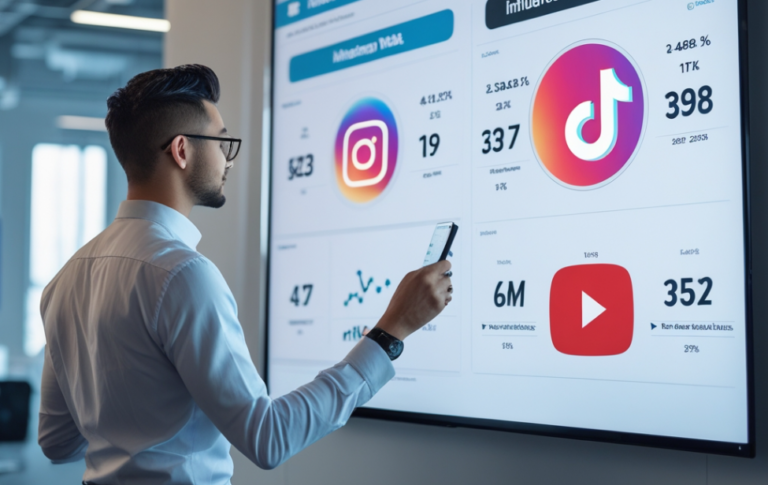The Ultimate Guide to Digital Marketing Trends in 2025 | Everything You Need to Know
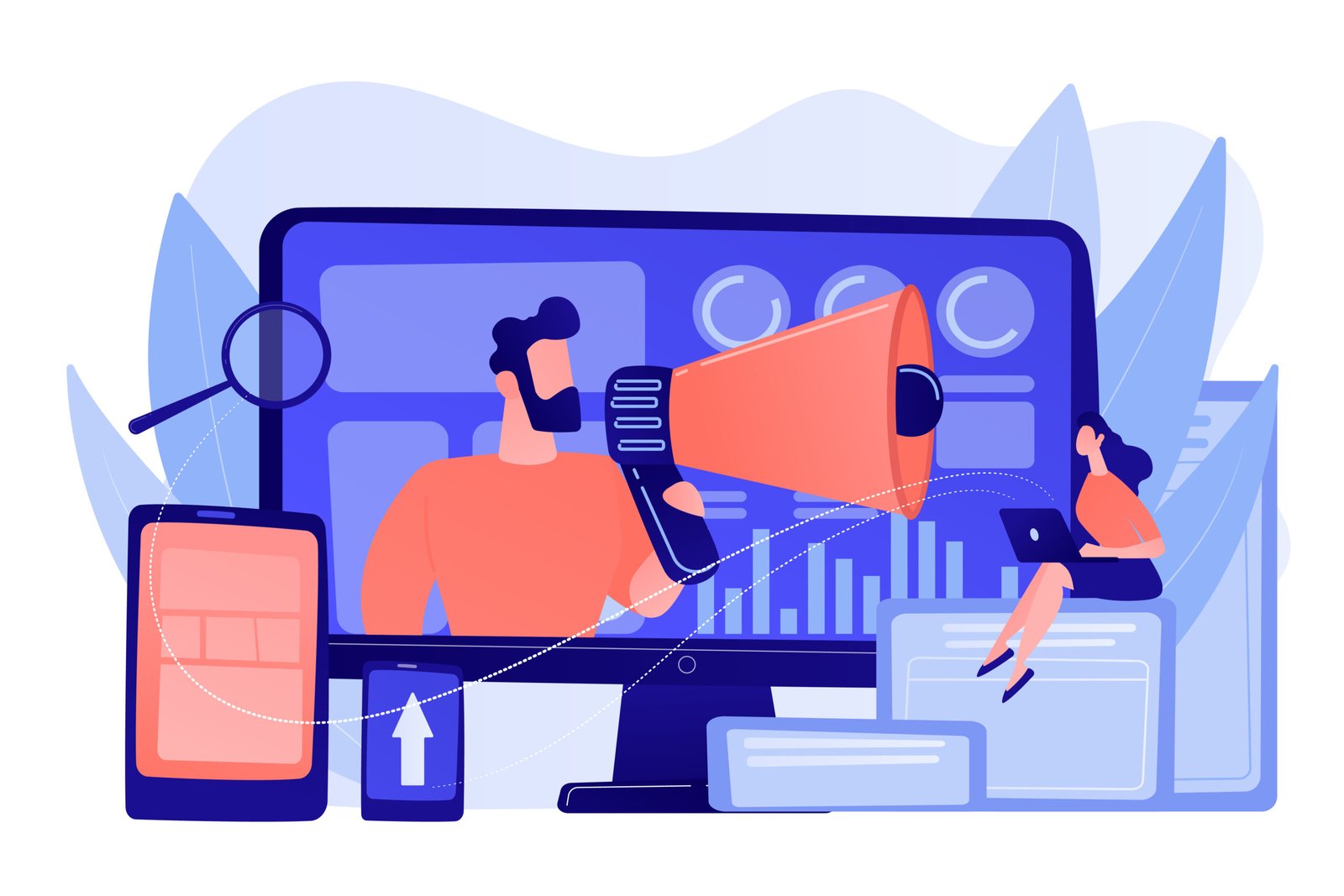
Why is digital marketing important?
Digital marketing is important for several reasons. Firstly, it allows businesses to reach a large audience in a cost-effective and measurable way. Unlike traditional marketing methods, digital marketing enables businesses to target specific demographics and track the performance of their campaigns in real-time, allowing for greater control and flexibility in marketing strategies.
Secondly, digital marketing allows for more personalized and targeted marketing efforts. By leveraging data and analytics, businesses can tailor their marketing messages to specific customer segments, resulting in higher engagement and conversion rates.
Lastly, digital marketing is essential for businesses to stay competitive in today’s digital age. With more and more consumers turning to the internet to research products and services, businesses that do not have a strong online presence risk being left behind. Digital marketing allows businesses to reach and engage with their target audience effectively, driving growth and success in the digital era.

Benefits of Digital Marketing
Digital marketing offers businesses a multitude of benefits that traditional marketing methods simply can’t match. From reaching a larger demographic to providing measurable results, digital marketing has revolutionized the way businesses promote their products and services. Let’s explore some of the key benefits in detail:
Reach a Large Demographic
Digital marketing allows businesses to reach a vast audience across the globe. Unlike traditional marketing methods that are limited by geographical boundaries, digital marketing enables businesses to connect with potential customers anywhere in the world.
This ability to reach a large demographic is particularly beneficial for businesses looking to expand their customer base and increase brand awareness.
Cost Efficiency
One of the biggest advantages of digital marketing is its cost efficiency. Compared to traditional marketing methods, such as print ads or TV commercials, digital marketing is much more affordable.
With digital marketing, businesses can reach a larger audience for a fraction of the cost, making it an ideal choice for businesses with limited marketing budgets.
Measurable Results
Another key benefit of digital marketing is its ability to provide measurable results. Unlike traditional marketing methods, which can be difficult to track and measure, digital marketing allows businesses to track the performance of their campaigns in real-time.
This means that businesses can easily see which strategies are working and which are not, allowing them to make informed decisions about their marketing efforts.
Easier Personalization for Customers
Digital marketing enables businesses to personalize their marketing messages based on customer behavior and preferences. By leveraging data and analytics, businesses can tailor their marketing messages to specific customer segments, making them more relevant and engaging.
This personalization not only helps businesses connect with their audience on a deeper level but also increases the likelihood of conversion.
Opportunity to Engage with Customers at Various Stages
Digital marketing provides businesses with the opportunity to engage with customers at various stages of the buying journey.
From awareness to consideration to purchase, digital marketing allows businesses to create targeted campaigns that resonate with customers at each stage, ultimately driving them towards conversion.
Easy and Convenient Conversions
Finally, digital marketing makes it easy for customers to convert. With features such as one-click purchasing and personalized recommendations, digital marketing streamlines the conversion process, making it easier and more convenient for customers to make a purchase.
Types of Digital Marketing
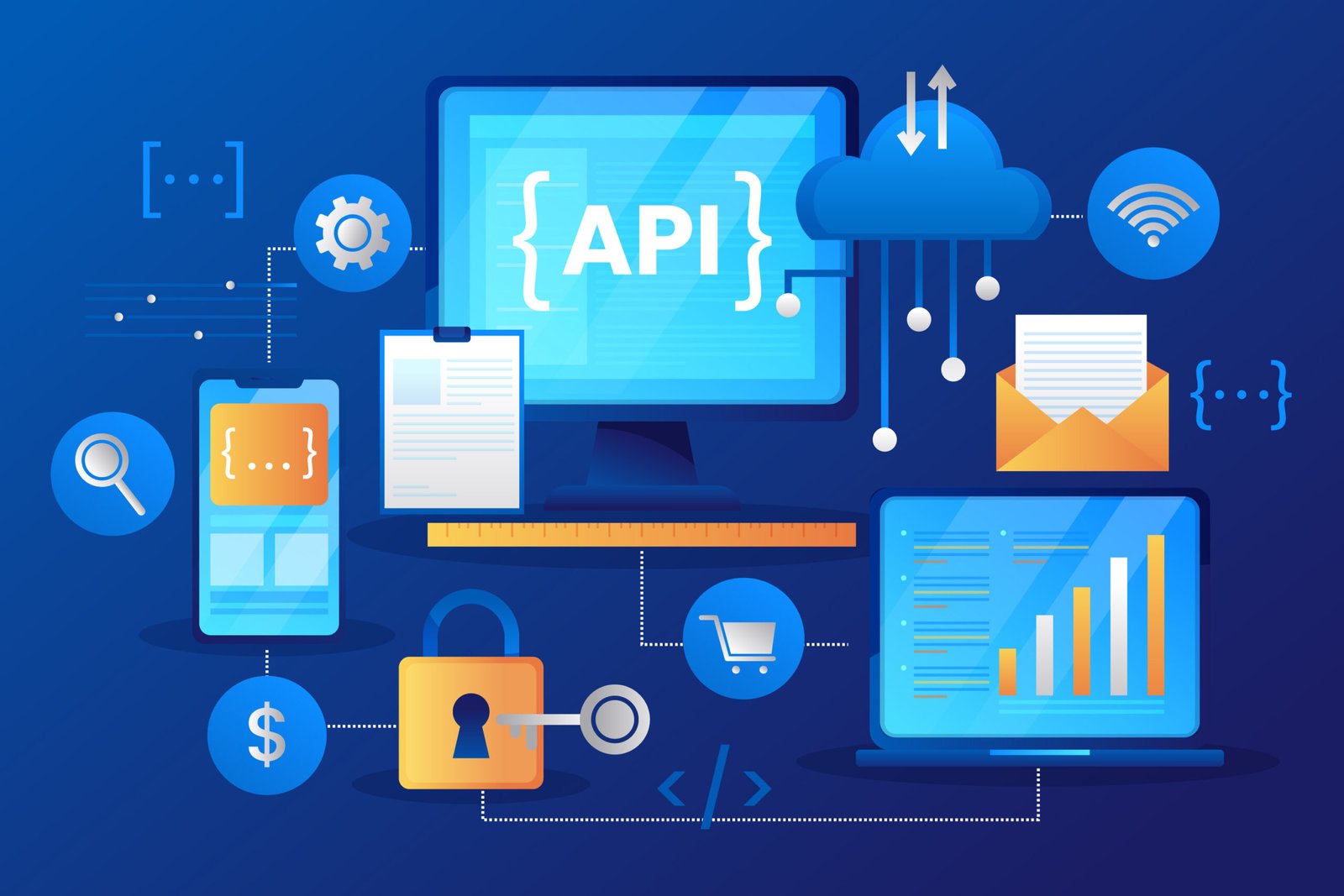
Types of Digital Marketing
In the vast landscape of digital marketing, various strategies and techniques cater to diverse business needs and goals. Understanding these types can help you tailor your marketing efforts for maximum impact. Here are some key types of digital marketing:
Content Marketing
Content is king in the digital realm. This approach involves creating and distributing valuable, relevant content to attract and engage your target audience.
From blogs and videos to infographics and eBooks, content marketing aims to build brand awareness, drive traffic, and ultimately, generate leads.
Search Engine Optimization (SEO)
SEO is the practice of optimizing your website to rank higher in search engine results pages (SERPs). By improving your site’s visibility for relevant searches, you can attract more organic (non-paid) traffic and enhance your online presence.
Search Engine Marketing (SEM)
While SEO focuses on organic search results, SEM involves paid advertising to appear in search engine results. This includes pay-per-click (PPC) ads, where advertisers pay a fee each time their ad is clicked. SEM can be a powerful tool for driving targeted traffic to your website.
Social Media Marketing
Social media platforms offer a valuable opportunity to connect with your audience, build brand awareness, and drive engagement. Social media marketing involves creating and sharing content on social media platforms to achieve your marketing goals.
Pay-Per-Click (PPC) Advertising
PPC advertising allows advertisers to bid for ad placement in a search engine’s sponsored links when someone searches for a keyword related to their business. It’s a way to buy visits to your site rather than earning them organically.
Affiliate Marketing
Affiliate marketing is a performance-based marketing strategy where businesses reward affiliates for driving traffic or sales to their website. Affiliates promote products or services through unique links and earn a commission for each successful referral.
Native Advertising
Native advertising is a form of paid media where the ad experience follows the natural form and function of the user experience in which it is placed. It blends in with the surrounding content, making it less intrusive and more engaging for users.
Marketing Automation
Marketing automation refers to the use of software platforms and technologies to automate marketing tasks and workflows. This can include email marketing, social media posting, and other repetitive tasks, allowing marketers to focus on more strategic activities.
Email Marketing
Email marketing remains one of the most effective digital marketing strategies for nurturing leads and engaging with customers. It involves sending targeted emails to your audience to promote products, share content, or build relationships.
Mobile Marketing
With the increasing use of mobile devices, mobile marketing has become essential for reaching on-the-go consumers. This includes mobile-optimized websites, mobile apps, and SMS marketing to engage with mobile users effectively.
Video Marketing
Video content is highly engaging and can help you tell your brand’s story in a compelling way. Video marketing involves creating and sharing videos to promote your products or services, educate your audience, or showcase your brand’s personality.
Influencer Marketing
Influencer marketing involves partnering with influencers or industry experts to promote your products or services to their audience. By leveraging the influence and credibility of these individuals, you can reach a larger and more targeted audience.
Each type of digital marketing has its strengths and can play a role in your overall marketing strategy. By understanding these types and how they can benefit your business, you can create a comprehensive digital marketing plan that drives results.

How to Do Digital Marketing?
Embarking on a digital marketing journey requires a strategic approach to ensure success. Here’s a guide on how to effectively execute your digital marketing efforts:
Define Your Goals
Start by defining clear and achievable goals for your digital marketing campaigns. Whether it’s increasing brand awareness, driving website traffic, or generating leads, having specific goals will guide your strategy and help you measure success.
Identify Your Target Audience
Understanding your target audience is key to creating relevant and engaging content. Conduct market research to identify the demographics, interests, and pain points of your audience, allowing you to tailor your messaging accordingly.
Set a Budget for Each Digital Channel
Allocate your budget strategically across various digital marketing channels based on your goals and target audience. Consider factors such as the cost per click (CPC), reach, and conversion rates of each channel to optimize your budget allocation.
Select Your Digital Marketing Channels
Choose the digital marketing channels that align with your goals and target audience. This could include social media platforms, search engines, email marketing, content marketing, and more. Each channel offers unique opportunities to reach and engage with your audience.
Optimize Your Digital Assets for Mobile
With the majority of internet users accessing content on mobile devices, it’s crucial to ensure that your digital assets, such as websites and emails, are optimized for mobile. This includes responsive design, fast loading times, and mobile-friendly content.
Refine Your Marketing Efforts
Regularly review and analyze the performance of your digital marketing campaigns to identify areas for improvement. Use data and analytics to refine your strategies and tactics, ensuring that you’re constantly optimizing for better results.
Rely on a Powerful Platform for Your Digital Marketing Efforts
Utilize digital marketing platforms and tools to streamline your efforts and maximize efficiency. Whether it’s a content management system (CMS), email marketing software, or social media management tool, choosing the right platform can greatly enhance your digital marketing efforts.
By following these steps, you can create a solid foundation for your digital marketing strategy and set yourself up for success in the digital landscape.
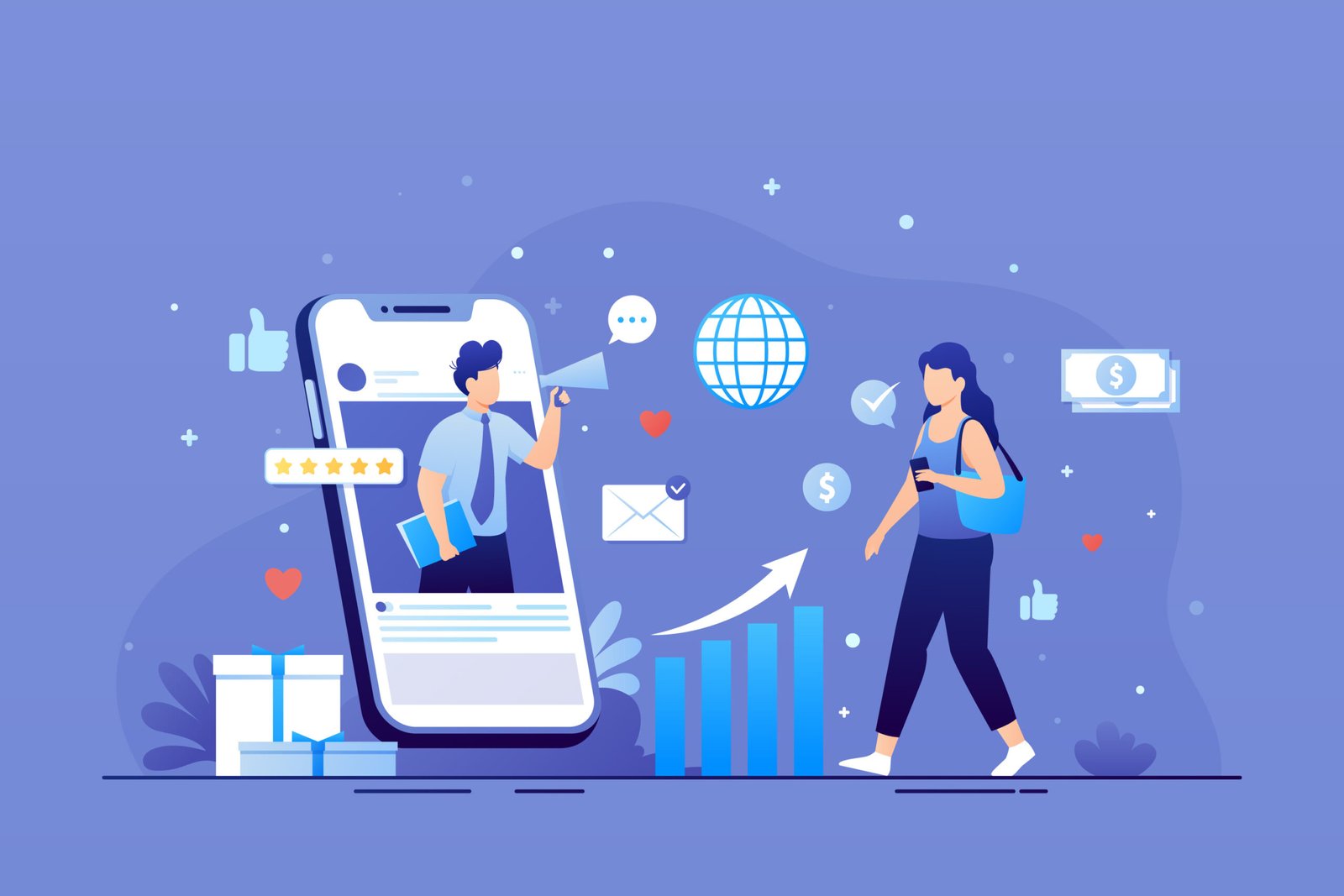
Digital Marketing Recommendation and Resources for 2025
In the ever-evolving world of digital marketing, staying informed about the latest trends and best practices is essential for success. Here are some recommended resources to help you enhance your digital marketing knowledge:
Digital Marketing Strategy: What It Is and How to Create One
A digital marketing strategy is a plan of action that outlines your goals and how you will achieve them using digital channels and tactics. This resource will guide you through the process of creating a comprehensive digital marketing strategy that aligns with your business objectives and drives results.
Digital Marketing Metrics Your Business Should Be Using
Metrics are key performance indicators (KPIs) that help you measure the success of your digital marketing efforts. This resource will introduce you to the essential metrics you should be tracking, such as website traffic, conversion rates, and return on investment (ROI), and how to use them to optimize your campaigns.
What Is a Landing Page in Digital Marketing?
A landing page is a standalone web page created specifically for a marketing or advertising campaign. It is designed to capture visitor information through a lead form or encourage them to take a specific action, such as making a purchase or signing up for a newsletter. This resource will explain the importance of landing pages in digital marketing and how to create effective ones that drive conversions.
By leveraging these recommended resources, you can stay ahead of the curve in digital marketing and develop strategies that deliver tangible results for your business.
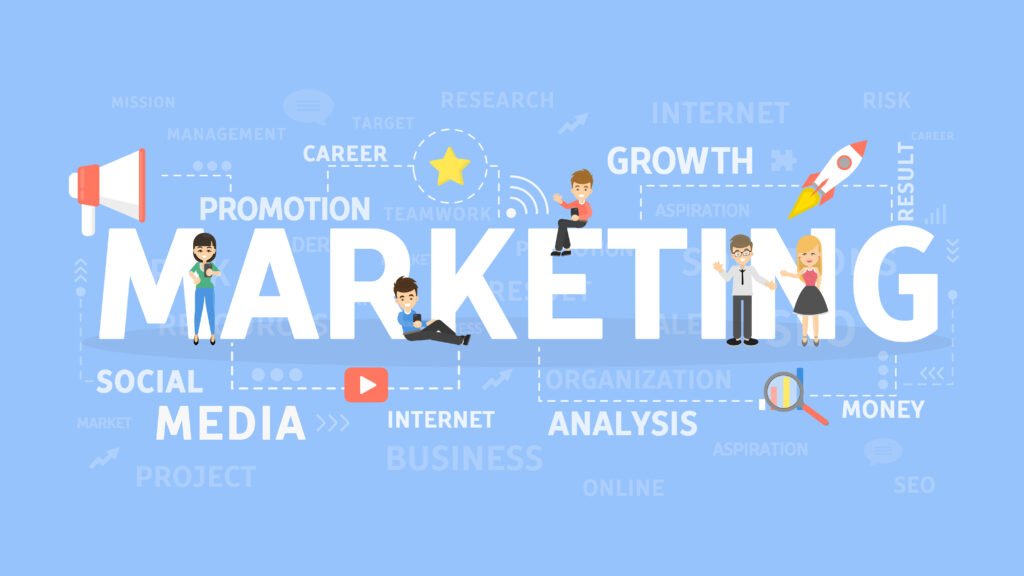
Digital Marketing Concepts and Practical Examples
Digital marketing is a dynamic and ever-evolving field that encompasses a wide range of concepts and practices. Understanding these key concepts is essential for anyone looking to succeed in digital marketing. Here are some key concepts and examples to help you grasp the fundamentals:
Key Performance Indicators (KPIs) in Digital Marketing
KPIs are metrics used to measure the success of digital marketing campaigns. Some common KPIs in digital marketing include website traffic, conversion rates, click-through rates, and return on investment (ROI).
Digital Marketing Challenges
Digital marketing presents several challenges, including:
- Keeping up with rapidly evolving technology
- Staying ahead of competitors
- Managing data privacy and security
- Adapting to changes in consumer behavior
- Measuring the effectiveness of campaigns
What Is a Digital Marketing Agency?
A digital marketing agency is a company that specializes in providing digital marketing services to businesses. These services can include website design, social media management, search engine optimization, and online advertising.
What Is SEO in Digital Marketing?
SEO, or search engine optimization, is the process of optimizing your website to rank higher in search engine results pages (SERPs). By optimizing your site for relevant keywords, you can improve your visibility in search engines and drive more organic traffic to your site.
How Can You Become a Digital Marketer?
To become a digital marketer, you need to develop a strong understanding of digital marketing concepts and practices. This can be achieved through formal education, online courses, and hands-on experience. It’s also important to stay updated with the latest trends and technologies in the field.
What Skills Are Needed in Digital Marketing?
Digital marketing requires a diverse set of skills, including:
- Analytical skills
- Creativity
- Communication skills
- Technical skills (e.g., SEO, PPC)
- Data analysis skills
- Adaptability
By mastering these skills, you can become a successful digital marketer and drive results for your business or clients.

Maximizing Your Digital Marketing Strategy
In the dynamic world of digital marketing, maximizing your efforts is key to achieving success. This guide delves into essential strategies and concepts to help you make the most of your digital marketing campaigns:
Inbound Marketing Versus Digital Marketing
While digital marketing encompasses a wide range of online tactics, inbound marketing specifically focuses on attracting customers through valuable content and experiences. Understanding the difference between the two can help you tailor your approach for optimal results.
B2B Versus B2C Digital Marketing
Business-to-business (B2B) and business-to-consumer (B2C) digital marketing strategies differ based on the target audience and purchasing behavior. Knowing how to tailor your marketing efforts to these distinct audiences can significantly impact your campaign’s effectiveness.
Digital Marketing Creates Growth
By implementing effective digital marketing strategies, businesses can experience significant growth. Whether it’s increasing brand awareness, driving website traffic, or generating leads, digital marketing can help take your business to the next level.
Take Your Business to the Next Level
Digital marketing offers endless opportunities for businesses to grow and thrive. By implementing best practices and staying updated with the latest trends, you can maximize your digital marketing efforts and take your business to new heights.
FAQs
How can I increase traffic?
To increase traffic to your website, focus on creating high-quality content that is relevant to your target audience. Use SEO best practices to optimize your content for search engines and promote it through social media and other channels.
Can you speed up my website?
Yes, we can help improve your website’s speed by optimizing images, minifying CSS and JavaScript files, and implementing caching solutions.
Will you manage my ads?
Yes, we offer ad management services to help you create and optimize ads across various platforms, including Google Ads, Facebook, and Instagram.
Can you help me with design?
Yes, we offer design services to help you create visually appealing graphics, websites, and other marketing materials.
Do you build websites?
Yes, we offer website development services to help you create a professional and user-friendly website that meets your business needs.
How can I grow my email list?
To grow your email list, consider offering incentives such as discounts or free resources in exchange for sign-ups. You can also promote your email list through social media and other channels to attract subscribers.


